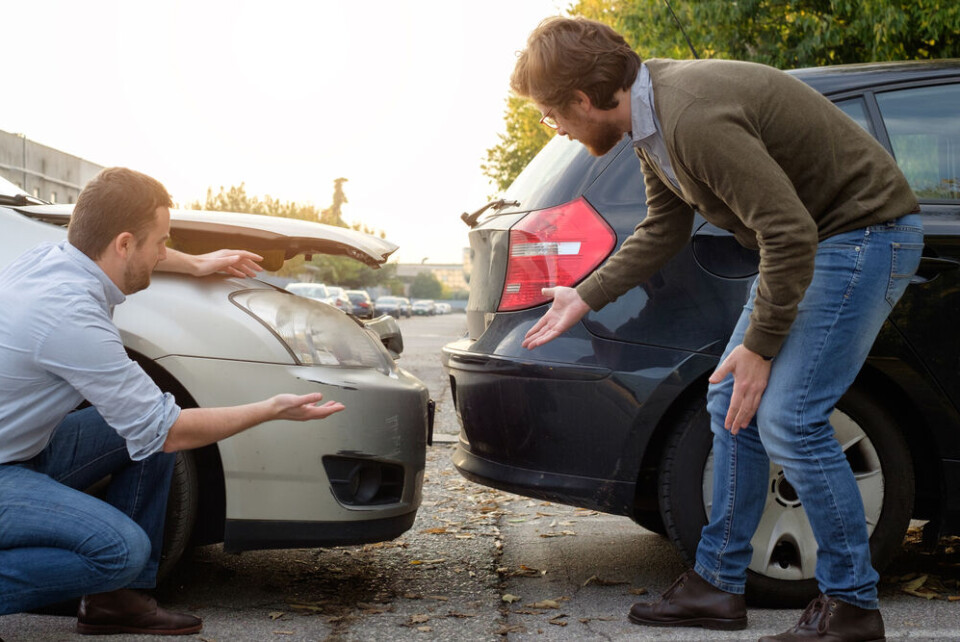-
Map: Car insurance costs rise in France - see the average in your region
Multiple studies show that costs are rising by around 5% year-on-year, with major differences by region and vehicle model
-
New natural disaster zones declared in south-east France
Property owners have 30 days to make a claim due to damage by landslides, mudslides, or flooding
-
How to check that your car is listed in France’s new digital insurance database
Green insurance stickers on windscreens were phased out in 2024
What is a constat amiable and do I legally need one in my French car?
It is highly recommended to carry this document in case of an accident

Reader Question: A neighbour told me of an accident he had when driving, and how he filled out a constat amiable afterwards with the other driver. Are these a legal requirement and do they come in English?
If you are in a car accident, it is common to fill out a form or report, signed by both drivers, detailing what happened in the incident.
This allows insurance companies to receive verified and acknowledged information about it.
In France, after an accident a driver might ask you to fill out a constat amiable, a paper document which gives information about the details of an accident on the road.
What is the constat amiable?
The constat amiable is not specifically a French document, but a French language version of a Europe-wide standardised form.
In English, it is known as a European Accident Statement (EAS) and is designed to be accepted by all insurance companies across the continent as the information contained is the same no matter the language.
From our research, it appears to still be widely accepted in the UK following Brexit, as it contains all the key information insurers need to know after an accident.
The form has two sides to complete – one for each driver – and for every version of the form, the questions are in the same place regardless.
For example, if you live in the UK but have an accident on holiday in France, you can send an English form to your insurance company back home and the other driver the French equivalent to their France-based provider.
French insurers often provide copies to their clients which have a carbon copy element so you only need to fill out one form together and one person keeps the carbon copy. If not, it is possible to fill the form out in duplicate.
It has the same questions in the same location regardless of language, so you can refer to an English-language version to help you fill in a French form, for example, without the risk of providing the wrong information.
The form can be filled in mostly by just one of the parties, if you wish, but both drivers should have a copy, signed by both parties, to send to their respective insurers.
The form’s similarity means that insurers should accept the form in any language, as they can use a version in their native tongue to review the information given in each section.
However, we would recommend, if possible, sending a French-language version to a French insurer and putting any comments in French, to avoid misunderstanding.
You can find an English-language PDF version of the EAS here.
If you need one in another main European language to show another driver (Spanish, French, Italian, German, etc) you can find it online by searching European Accident Statement plus the name of the language you need it in.
Read more: How can I insure my UK-registered car for long stays in France?
Do I need to keep one in my car?
Despite the usefulness of the EAS, it is not required to keep a version in your car, as it is not a legally-required document.
The French government however, strongly recommends on its Service Public website that if you have an accident you should complete the form for your insurance company.
If you want to fill out an EAS after an incident, but the other driver does not, you can still fill out your side of the form, and on it indicate the number plate of the other vehicle and state the driver would not complete it.
There is an online version of the EAS, which you can find on the smartphone application ‘e-constat auto’.
However, this can only be used if only two vehicles are involved in the accident – neither of which are classed as ‘foreign’ – and nobody is injured. The paper form can be used in most situations.
Related articles
Driver fine: Radars capture more motoring offences in France
Can a French insurer reject me because of a foreign driving licence?
























